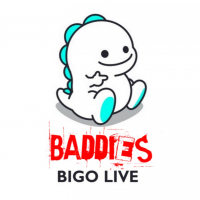Financial Issues for YouTubers
Financial Basics for YouTubers: Taxes, Income Tracking and Legal Status
Creating content on YouTube has long since stopped being just a hobby. For many creators, it’s a full-time job, and for some — the main source of income. As the audience and monetization grow, so does the need to properly handle financial matters: formalize legal status, pay taxes, and track income and expenses. A careless approach can lead to fines, tax issues, or an inability to scale the channel.
This article explores in detail how a YouTuber can organize a financial system to earn more, avoid mistakes, and build a sustainable business around their content.
Why a YouTuber Needs an Official Status
Many beginner creators don’t think about legal registration while their income is small. However, even from the first earnings, it’s worth understanding the advantages of having an official status:
- Legal income. All YouTube payments go through official channels, and proper registration helps avoid issues with tax authorities.
- Collaboration with brands. Companies prefer to sign contracts with registered entrepreneurs or legal entities to process payments correctly.
- Tax deductions. Expenses on equipment, software, and advertising can reduce the tax burden.
- Ease of scaling. When your channel grows, an official structure allows you to hire people or outsource tasks.
Legal registration turns your channel from a hobby into a predictable business with a financial system.
Choosing a Legal Form: Sole Proprietor or Self-Employed
In many countries, including Russia, creators usually choose between two forms: self-employed or individual entrepreneur (sole proprietor).
Self-employed
- Tax rate of 4% for income from individuals and 6% for income from companies.
- No need for complex accounting or expense reports.
- Can legally receive money from ads, donations, and sponsorships.
- Annual income limit — around 2.4 million rubles.
Sole Proprietor (Individual Entrepreneur)
- Option to choose simplified taxation (6% from income or 15% from profit).
- Can officially hire employees.
- Suitable for large projects and brand partnerships.
The choice depends on expected income, collaboration type, and scale of activity.
Taxes and Mandatory Payments
Self-employed creators pay a simple tax through a mobile app. No pension fund payments, no reports, minimal bureaucracy.
Sole proprietors, on the other hand, face more complex obligations:
- Annual tax declaration under simplified taxation.
- Income or profit tax, depending on the chosen system.
- Mandatory insurance contributions.
- Additional taxes may apply to certain activities.
It’s essential for a YouTuber to consider tax deadlines, penalties, and the potential to reduce taxes via deductions for equipment or outsourcing.
Tracking Income
A YouTuber’s income may come from various sources:
- YouTube Partner Program — ads, views, Super Chat, Super Stickers.
- Sponsorships and brand integrations.
- Donations and memberships — Twitch, Boosty, Patreon, YouTube Membership.
- Merchandise and services — merch, tutorials, consultations.
Every transaction should be logged — date, source, amount, and payer type. Accurate records help analyze growth and prepare taxes correctly.
Tracking Expenses
Expenses are crucial for tax optimization and planning:
- Equipment — cameras, microphones, PCs, lighting, green screens.
- Software — OBS Studio, Adobe Premiere, Photoshop, music libraries.
- Promotion — social media ads, collaborations.
- Outsourcing — editing, design, admin support.
- Utilities — internet, electricity, professional courses.
Entrepreneurs can deduct expenses to lower taxes. Even self-employed creators benefit from tracking costs for channel efficiency analysis.
Tools for Financial Management
Managing finances requires a structured approach. Popular tools include:
- Excel or Google Sheets for manual tracking.
- Accounting software — Kontur, SBIS, or MyBusiness for more complex cases.
- Apps for self-employed users — “My Tax” for income tracking and automatic tax calculation.
- Bank integrations that classify transactions automatically.
The key is consistency: record income and expenses regularly to avoid confusion and mistakes in reports.
Specifics for Streamers
Streamers should pay attention to several nuances:
- Partner payouts from foreign platforms — YouTube, Twitch, Kick — require currency conversion for tax purposes.
- Donations and merch sales are taxable income and must be reported.
- Joint projects with other creators should include written agreements to correctly distribute income and expenses.
Financial Planning and Strategy
Financial management is not only about taxes — it’s about growth:
- Income analysis — identify your most profitable sources.
- Expense optimization — determine which costs can be reduced.
- Investing in content — equipment, collaborations, and software upgrades.
- Emergency fund — save for taxes and unexpected expenses.
Proper planning ensures stable income and business development without financial stress.
Conclusion
Financial literacy is one of the key aspects of professional content creation. The right legal setup, regular income and expense tracking, tax knowledge, and long-term planning form the foundation of sustainable growth.
Key takeaways:
- Register as self-employed or sole proprietor for legal income.
- Track income and expenses for better analysis and optimization.
- Use accounting tools to simplify financial management.
- Plan strategically to scale your channel confidently.
A YouTuber who understands financial management not only avoids tax issues but also gains the ability to work with brands, expand their business, and increase income sustainably.
Our Services for Streamers
Our Services for Content Creators











